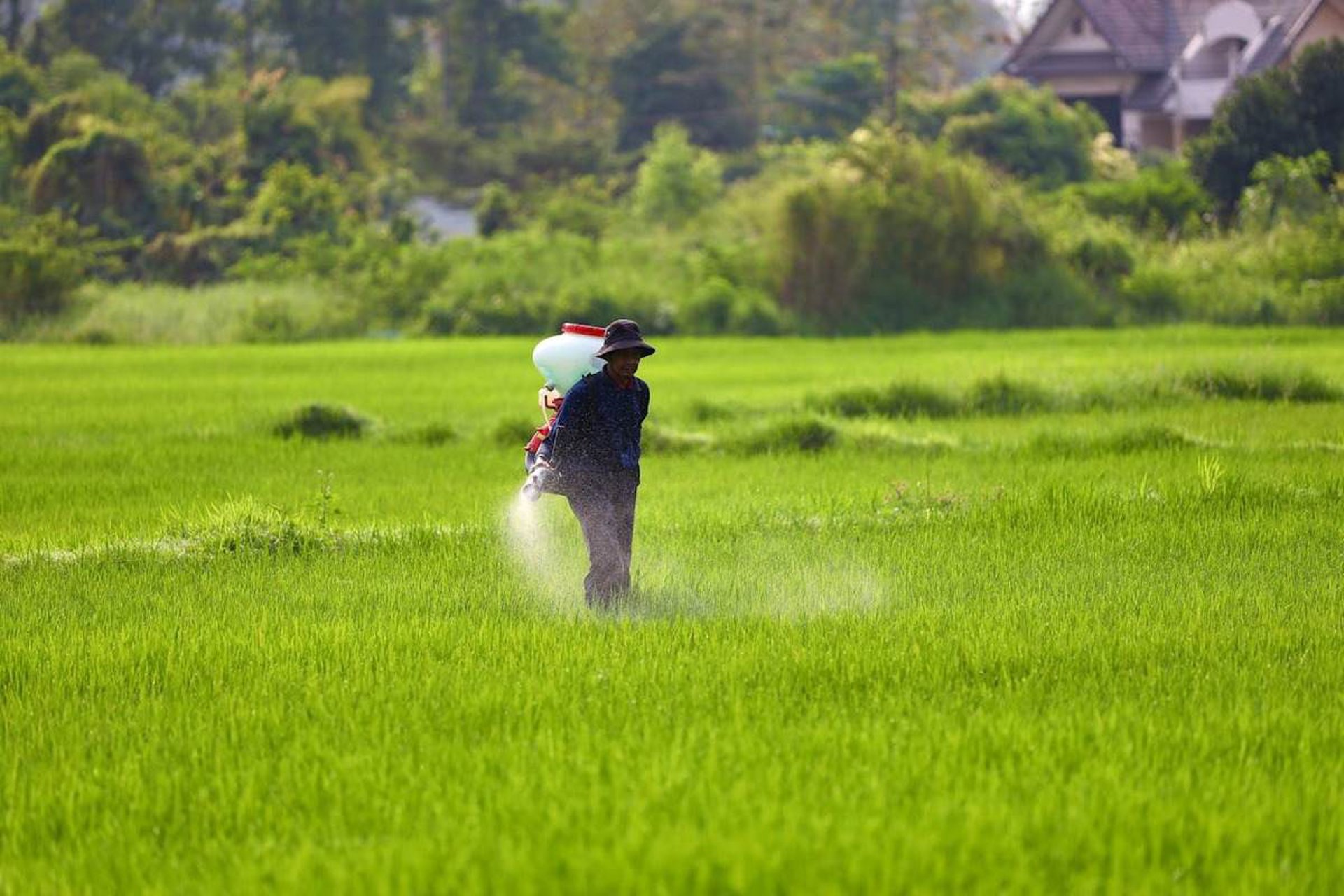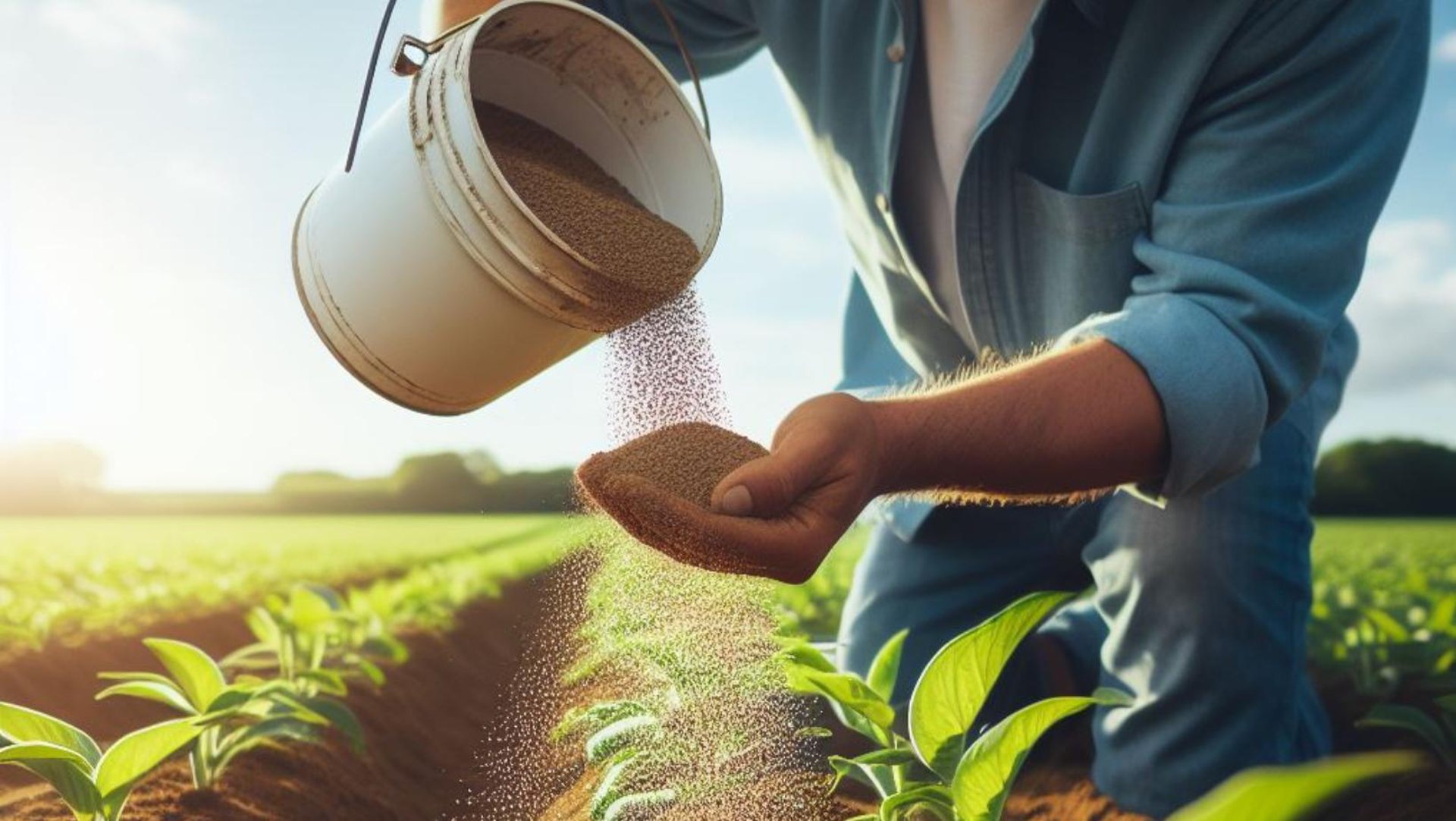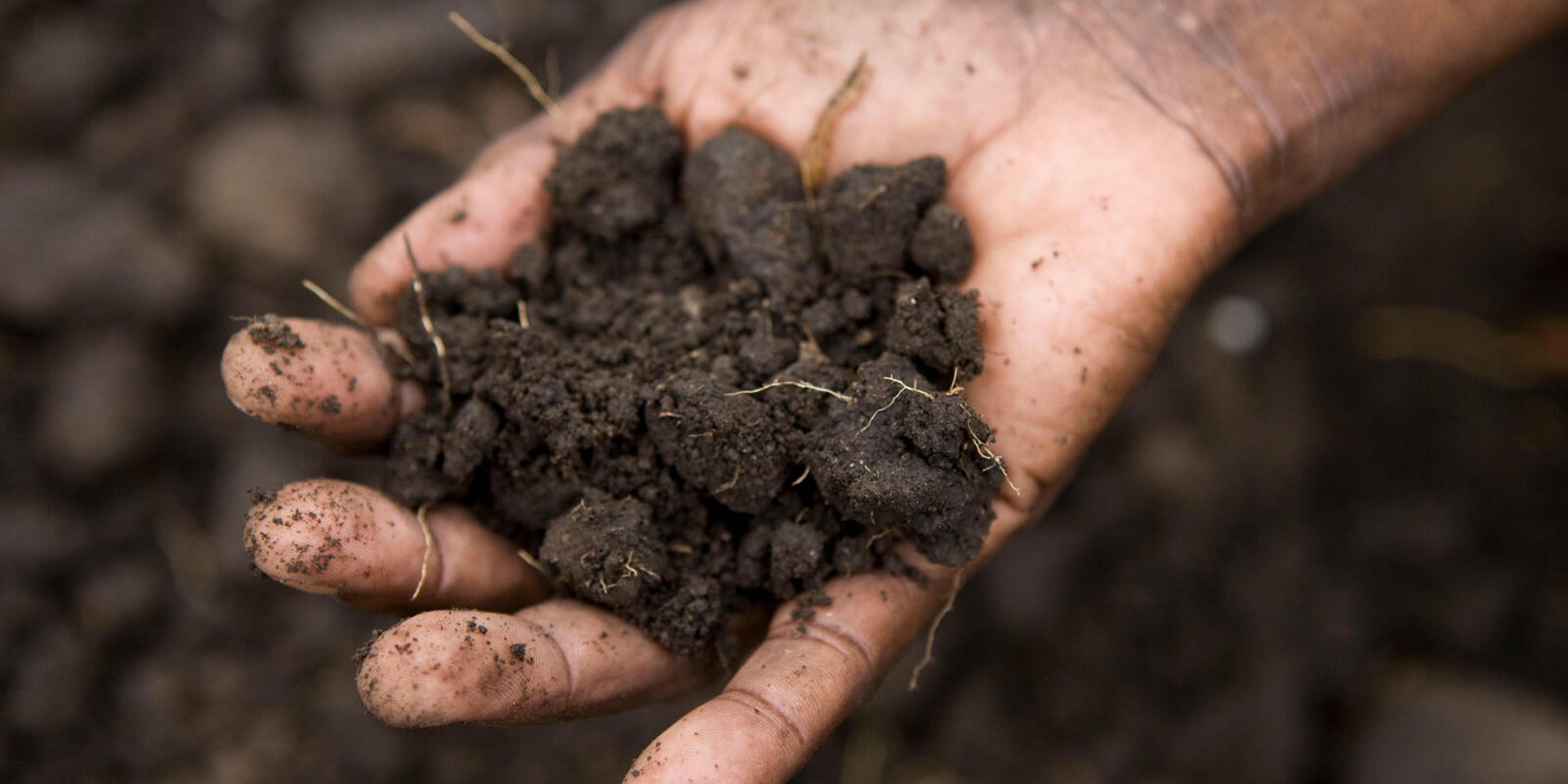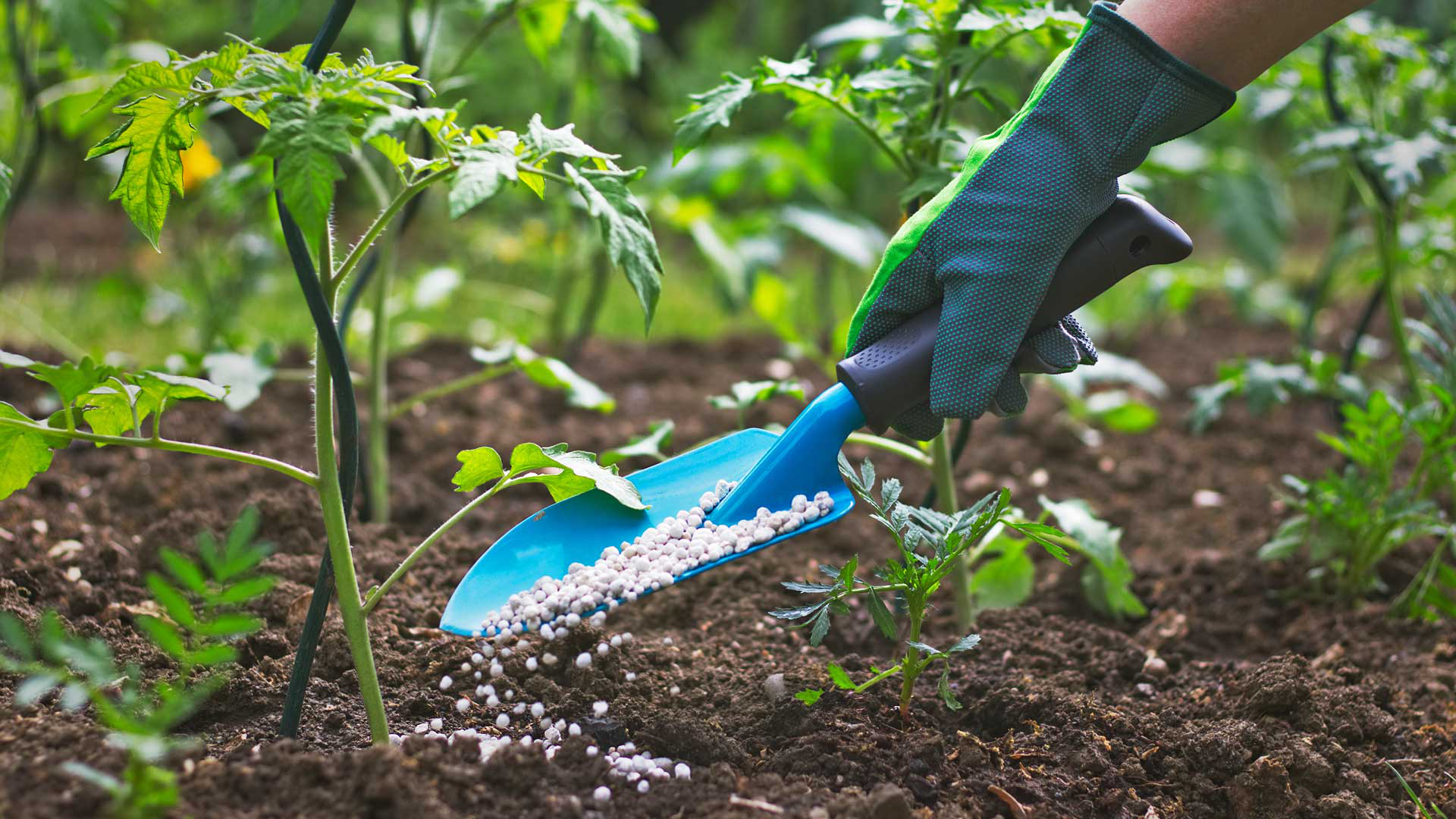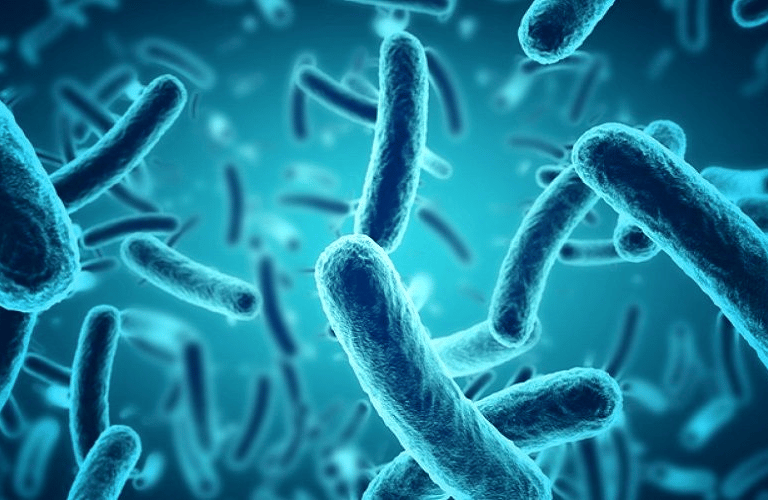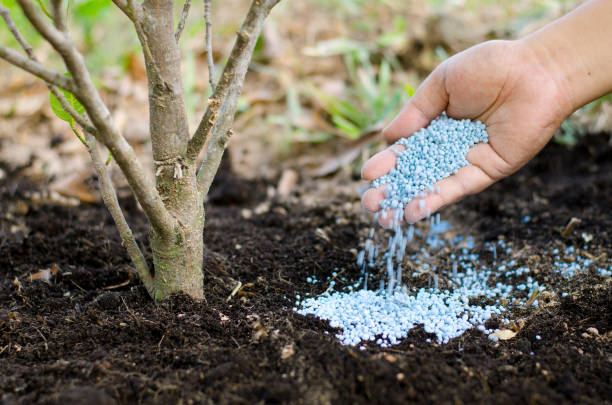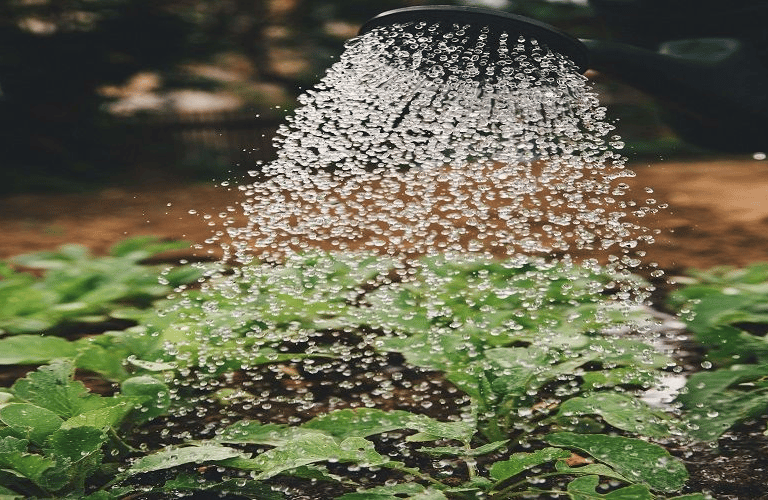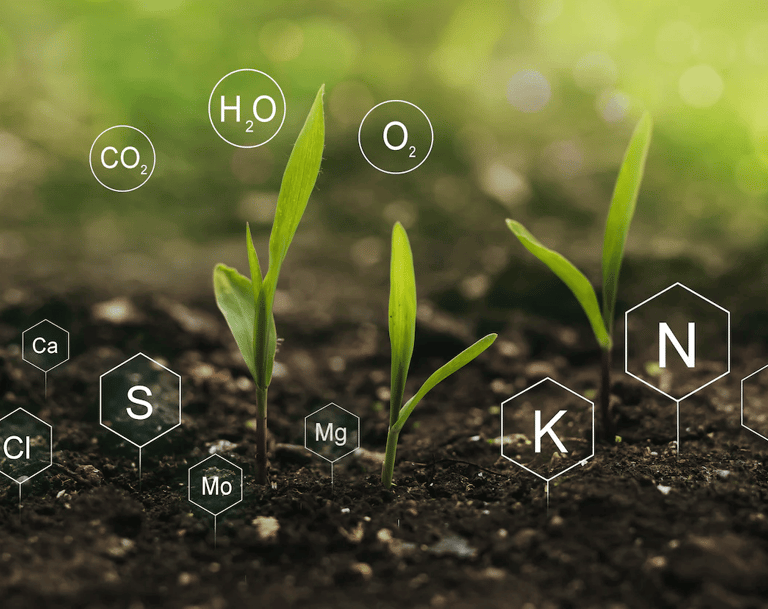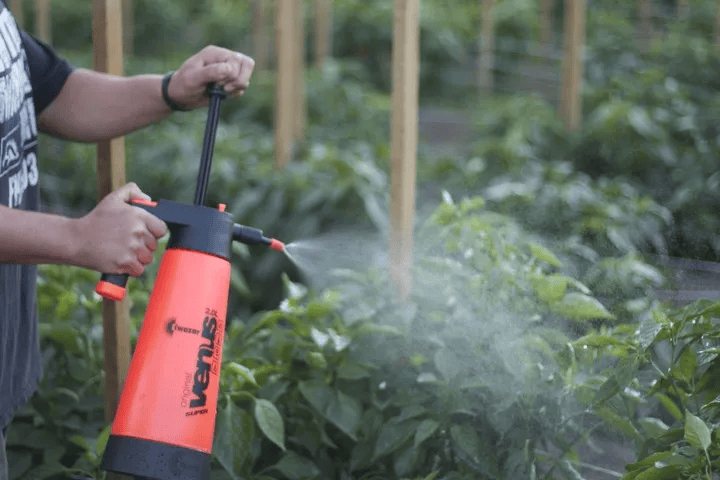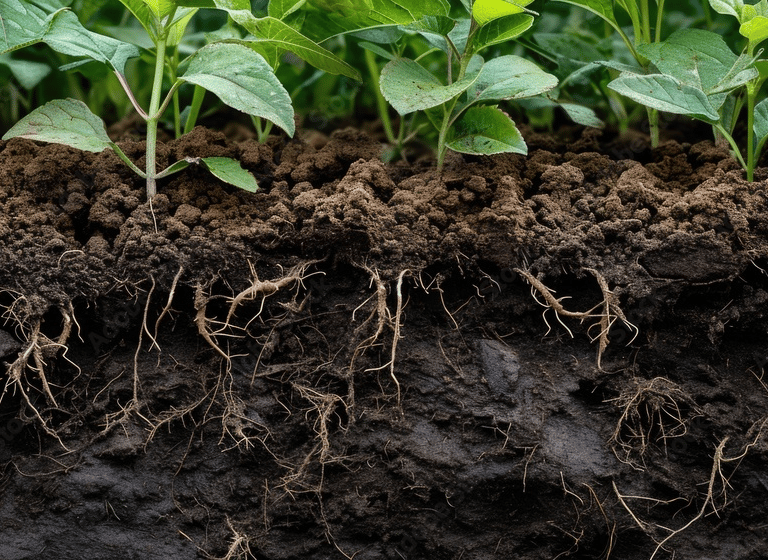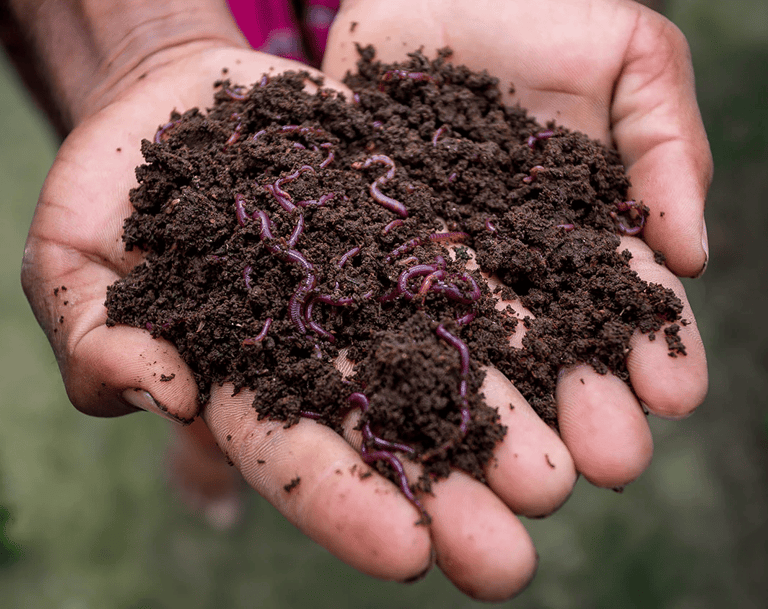Welcome to Urvarakam Fertilizer
Revitalize your land, Enrich your life
Organic Care for Every Leaf!
Vedic Farming promotes the use of natural and organic methods of farming that do not harm the environment or any living beings. It also helps to conserve biodiversity and reduce the use of chemical fertilisers and pesticides.
Environmentally Sustainable
Better Soil Health
Higher Crop Yields
Better Nutrition
Vedic Farming emphasises the importance of maintaining healthy soil. It promotes using natural fertilisers, such as cow dung and compost, and crop rotation to improve soil health and fertility.
Vedic Farming techniques have been shown to increase crop yields and improve product quality. This is due to the use of natural fertilisers, crop rotation, and the promotion of biodiversity.
Vedic Farming promotes the use of natural and organic methods of farming that do not use chemical fertilisers and pesticides. This results in produce that is healthier and more nutritious.
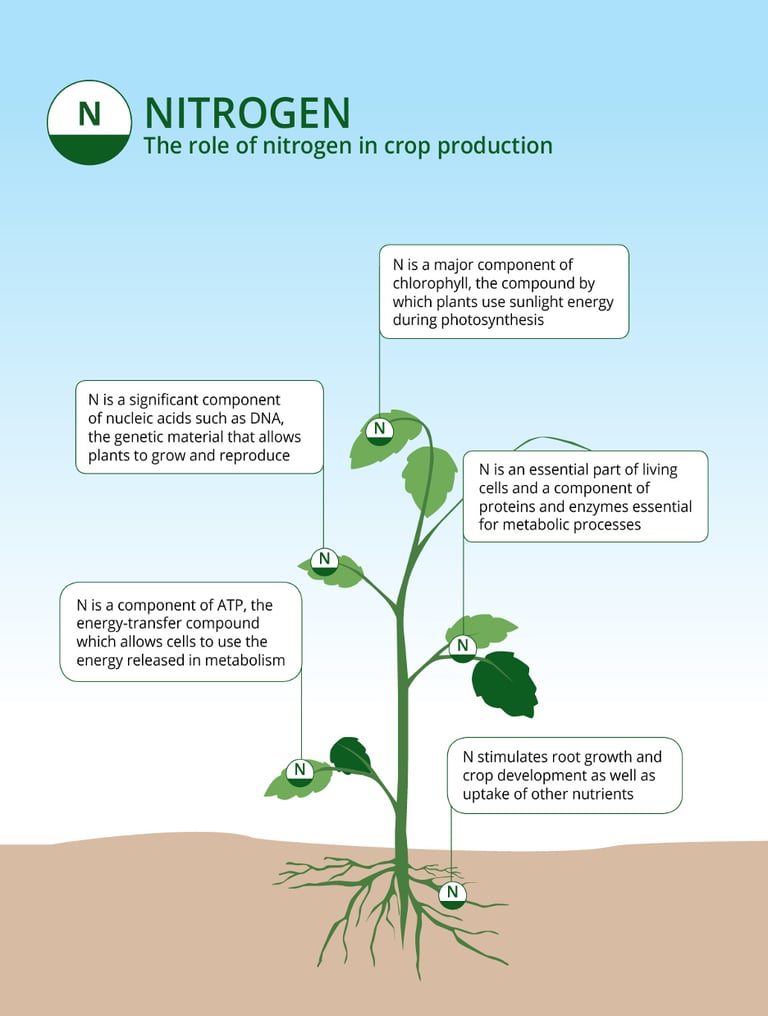

Role of Nitrogen in Crop Production
Nitrogen is an important component of many essential structural, genetic, and metabolic compounds in plant cells. It is also an elementary constituent of numerous important organic compounds including amino acids, proteins, nucleic acids, enzymes, and the chlorophyll molecule. It is clear to see why it is essential to ensure crops have access to sufficient nitrogen.
Plant roots take up nitrogen in its inorganic forms, nitrate (NO₃⁻) and ammonium (NH₄⁺) ions. Once inside the plant, NO₃⁻ is reduced to the NH₂ form and is assimilated to form the organic compounds.
Nitrogen is not recommended for legume crops such as soybean, since they manufacture their own nitrogen supply. Nitrogen-fixing soil organisms (rhizobium) associated with the roots of legumes capture atmospheric nitrogen and make it available to the plant.
The importance of nitrogen stems from its multiple roles in plants:
Formation of amino acids and proteins
Synthesis of nucleic acids (DNA and RNA)
Production of enzymes
Essential component of chlorophyll
Support for structural and genetic compounds
Metabolic functions and energy transfer
Growth and development of plant tissues
Contribution to overall crop yield and quality
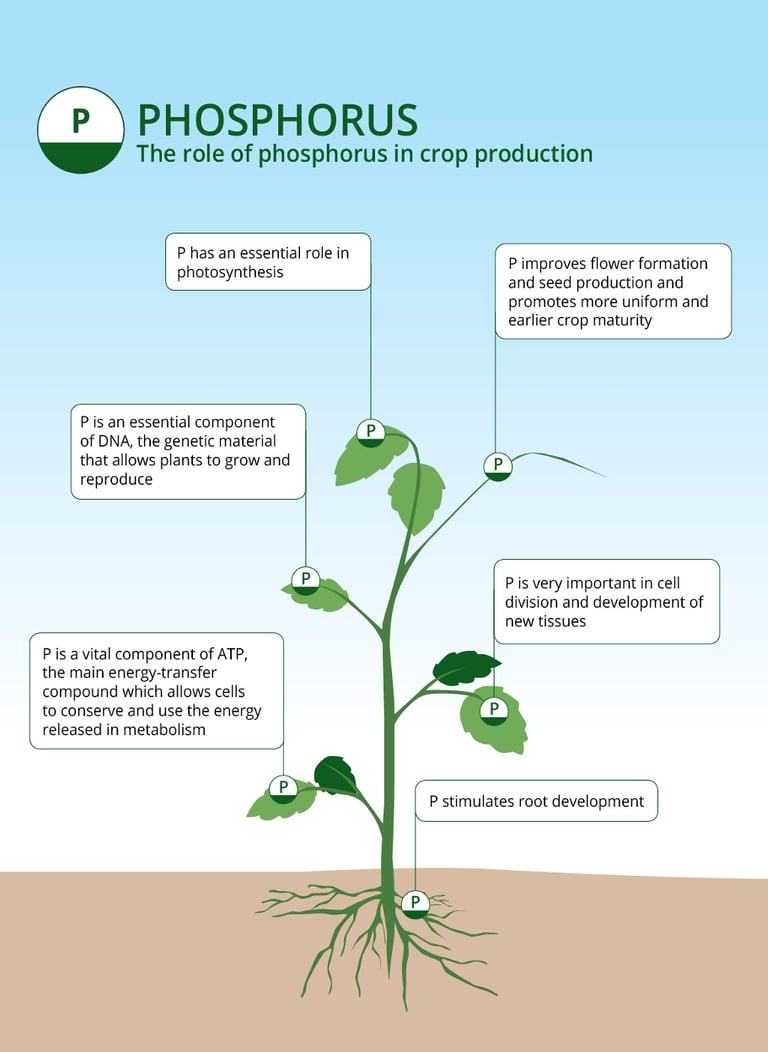

Role of Phosphorus in Crop Production
All plants require phosphorus to maintain their general well-being and vigor, Phosphorus is a vital nutrient for plants, playing a key role in energy transfer, photosynthesis, and nutrient movement within the plant. It is an essential component of nucleic acids, ATP (adenosine triphosphate), and phospholipids, which form the structural foundation of cell membranes. Due to its involvement in these critical functions, phosphorus is necessary for root development, flowering, and fruiting.
Plants absorb phosphorus from the soil primarily in the form of phosphate ions (H₂PO₄⁻ and HPO₄²⁻). Once absorbed, phosphorus is incorporated into organic molecules and compounds necessary for plant metabolism and growth.
The importance of phosphorus stems from its multiple roles in plants:
Energy transfer through ATP (adenosine triphosphate)
Formation of nucleic acids (DNA and RNA)
Development of roots and root systems
Synthesis of phospholipids for cell membranes
Regulation of photosynthesis and respiration
Support for flowering and seed production
Involvement in metabolic processes
Contribution to overall plant growth and crop yield
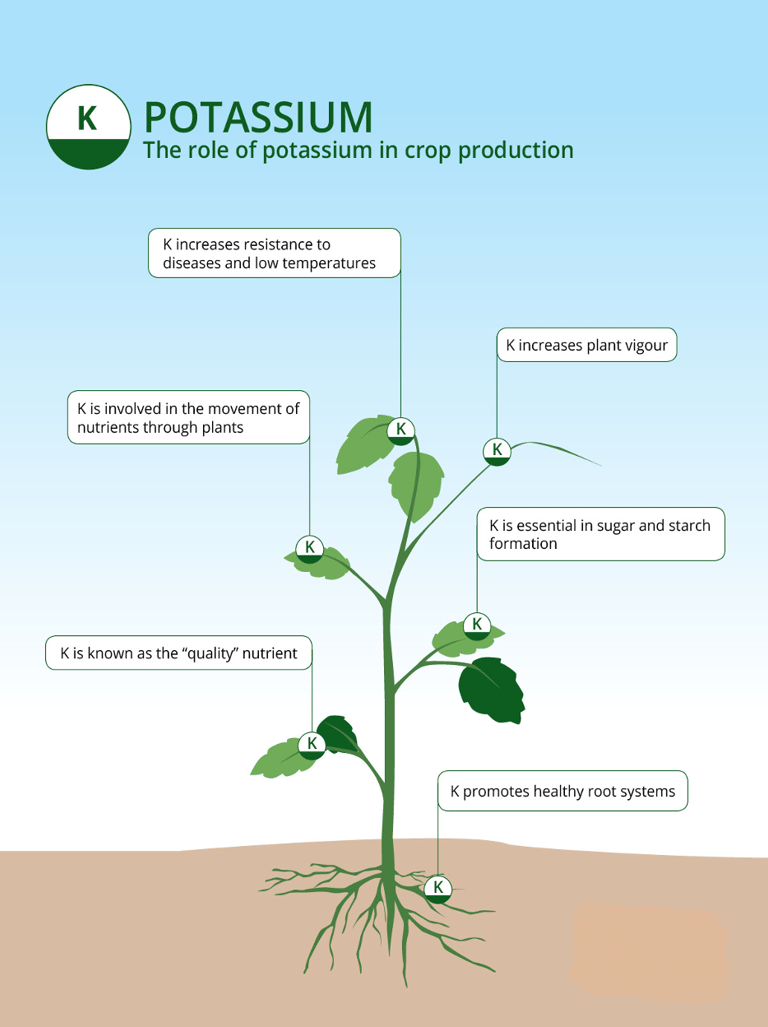

Role of potassium in Crop Production
Potassium is essential for overall health, productivity, and quality of plants! From protein synthesis to flower and fruit development, potassium (or lack of) significantly influences crop yield and quality. By helping develop strong and healthy root systems, potassium also increases the efficiency of the uptake and use of nitrogen and other nutrients.
Potassium is an essential macronutrient that plays a crucial role in various physiological processes in plants. It is involved in enzyme activation, water regulation, photosynthesis, and the synthesis of proteins and starches.
Plants absorb potassium from the soil in its ionic form, primarily as potassium ions (K⁺). Once taken up, potassium moves through the plant and accumulates in cells where it performs critical functions related to growth and stress resistance,
The importance of potassium stems from its multiple roles in plants:
Water Regulation
Photosynthesis Support
Nutrient Uptake
Enzyme Activation
Starch Formation
Stress Tolerance
Flowering and Fruit Development
Disease Resistance
Yield and Quality
Global Presence
From India , For the World
"Building a sustainable future, locally and globally. With a presence in key agricultural regions, we tailor our organic fertilizer solutions to specific needs."



Discover The Power of Organic Growth with Urvarakam Fertilizer!
Why Choose Us
Trusted sourcing from certified manufacturers
Customised solutions for diverse agricultural needs
Efficient and reliable domestic & global export services
Dedicated customer support and technical guidance

